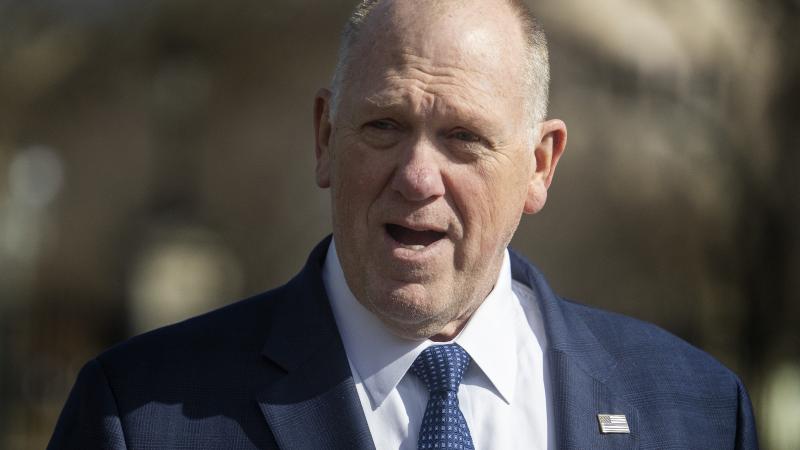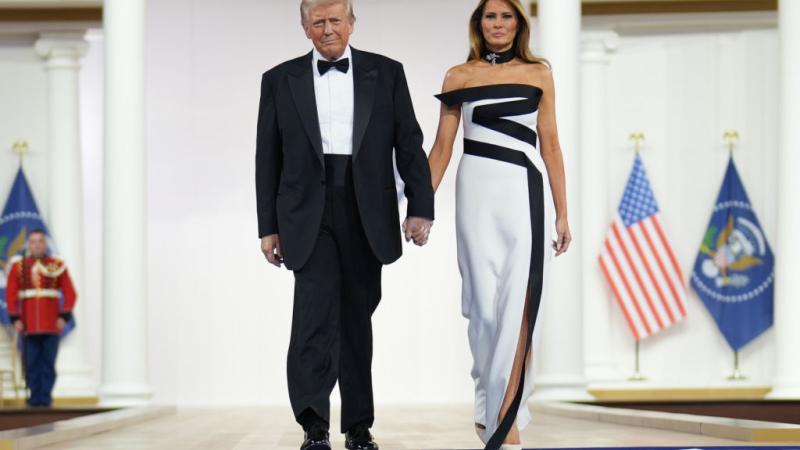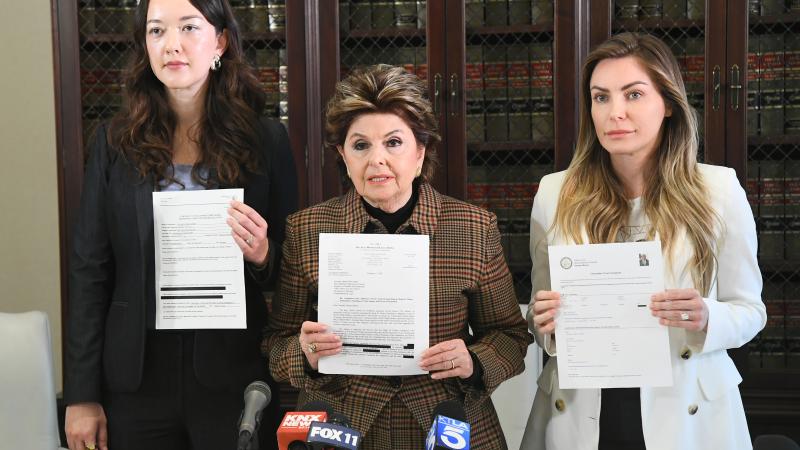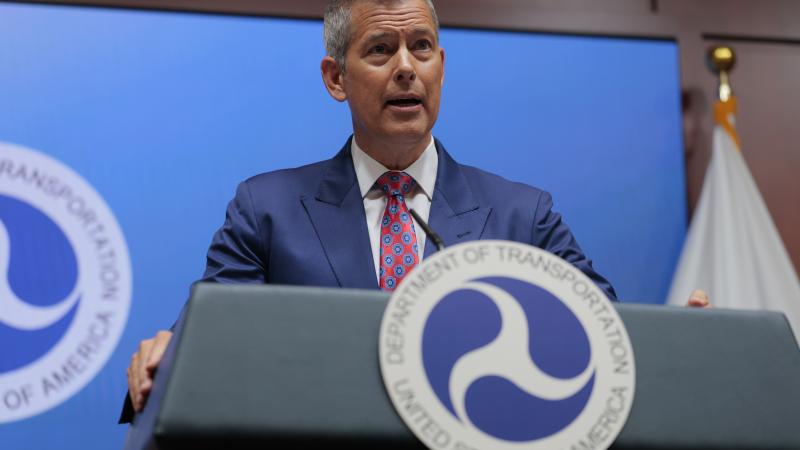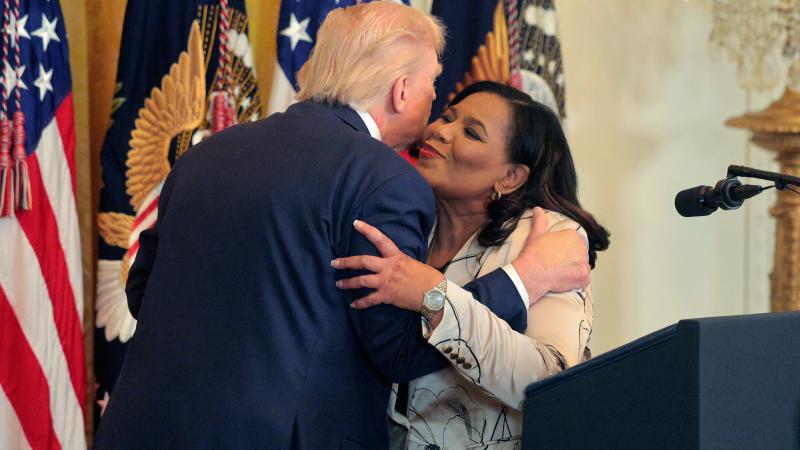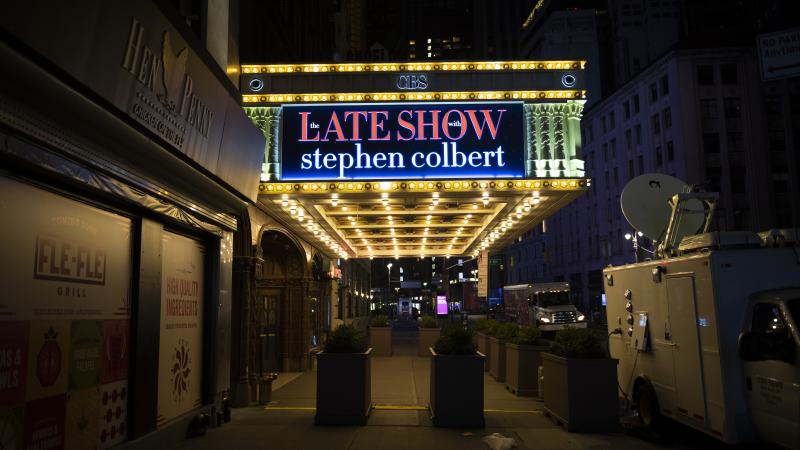Platforms over people? SCOTUS decisions make social media censorship easier than protecting speech
Justice Alito's concurrence reads more like dissent, says Kagan's opinion "unreflectively assumes" that platforms who "use secret algorithms to review and moderate an almost unimaginable quantity of data" are same as "newspaper editors who marked up typescripts in blue pencil 50 years ago."
Whose First Amendment rights are more important, those of individuals or corporations?
A pair of Supreme Court rulings days apart raised legal-standing hurdles for individuals to sue public officials for pressuring online platforms to censor their viewpoints and First Amendment hurdles for governments to protect viewpoints against platform censorship.
While both cases are heading back to lower courts for further development, the rulings may give Americans the impression they have little recourse against infringements of their digital speech, in the courts or at the ballot box, with four months before the presidential election.
The high court Monday sent Texas and Florida laws mandating social media viewpoint neutrality back to trial court, rebuking two federal appeals courts for not evaluating whether the laws were "facially" constitutional despite the 11th U.S. Circuit Court of Appeals blocking the Sunshine State's law while the 5th Circuit upheld the Lone Star State's law.
The 5th Circuit additionally betrays a "serious misunderstanding of First Amendment precedent and principle" by concluding that restricting the "selection, ordering, and labeling of third-party posts do[es] not interfere with expression," Justice Elena Kagan wrote, and that Texas has a "valid" interest in "changing the content of the platforms’ feeds."
Some excellent restatements of First Amendment first principles in Justice Kagan’s Supreme Court decision in Moody v. NetChoice today:
👉 “we have repeatedly held that laws curtailing their editorial choices must meet the First Amendment’s requirements. The principle does not…— Adam Thierer (@AdamThierer) July 1, 2024
"I'm actually glad the Supreme Court didn't jump in with two feet, and maybe is giving a little bit of time for these issues to simmer, and maybe have a 30,000-foot view on some of these issues, because they're very, very difficult," Harvard Law professor emeritus Alan Dershowitz told the "Just the News, No Noise" TV show Monday.
"I mean, the framers of the Constitution certainly would be turning over in their grave" if they had thought private parties would be "invoking the First Amendment, claiming that that gives them the right to censor," Dershowitz continued. "So they're closing the marketplace of ideas, but they're doing it under the First Amendment. And that's very, very difficult to conceptualize."
While no one dissented from Kagan's opinion, only four justices fully joined it – Sonia Sotomayor, Brett Kavanaugh, Amy Coney Barrett and Chief Justice John Roberts.
Barrett filed a concurrence and Justice Ketanji Brown Jackson concurred in part and in the judgment itself, while Justice Clarence Thomas concurred in the judgment but also joined Justice Samuel Alito's concurrence in the judgment along with Justice Neil Gorsuch.
Alito, Thomas and Gorsuch also united in dissent in last week's reversal of a 5th Circuit preliminary injunction against several federal agencies and officials for "coerc[ing] or significantly encourag[ing]" platform censorship, with Alito writing that the court tacitly tolerated government coercion as long as it's "carried out with enough sophistication."
The high court, by contrast, unanimously rejected what Alito called the "ham-handed censorship" of New York's former financial services superintendent in pressuring regulated entities to blacklist the National Rifle Association, reinstating the NRA's lawsuit in May.
Last week's remand of federal censorship coercion case Murthy v. Missouri is "kicking the can down … a very long road," probably another two years in court, Foundation for Freedom Online founder Mike Benz, a former State Department official, told the John Solomon Reports podcast.
The high court "did not have a very strong factual grasp of the government's actual role in censorship" because the justices didn't cite "many of the real bombshell aspects of government coercion" recently unearthed by the House Weaponization of the Federal Government Subcommittee's subpoenas to YouTube, Amazon and Facebook, he also said.
If censored doctors including Stanford's Jay Bhattacharya do not have legal standing as the justices said, Benz asked rhetorically, "then who does? Is it going to require Facebook itself to effectively sue the federal government for coercion?"
Monday's ruling closely resembles the back-and-forth at oral argument in February, in which justices suggested the plaintiff trade associations hurt their case by arguing the two state laws were unconstitutional in all applications, not just as applied to specific features.
"The courts mainly addressed what the parties had focused on ... as if the laws applied only to the curated feeds offered by the largest and most paradigmatic social-media platforms" such as Facebook's News Feed and YouTube's home page, Kagan wrote.
Barrett wrote in her concurrence: "Analyzing how the First Amendment bears on" curated feeds "is complicated enough without simultaneously analyzing how it bears on a platform’s other functions – e.g., Facebook Messenger and Google Search – much less to distinct platforms like Uber and Etsy."
"The Eleventh Circuit failed to appreciate the nature of this challenge" in evaluating the Florida law but "at least fairly stated our First Amendment precedent," Jackson's concurrence says, illustrating how frustrated several justices were with the 5th Circuit's analysis.
Kagan's opinion deemed that social media and user-generated content platforms such as Facebook and YouTube are no different from print newspapers, cable-TV companies or even parade organizers for First Amendment purposes.
The high court has "repeatedly held that laws curtailing their editorial choices must meet the First Amendment’s requirements," she wrote. "The principle does not change because the curated compilation has gone from the physical to the virtual world."
It's irrelevant whether any given "compiler" of third-party content "includes most items and excludes just a few," as do large platforms, Kagan said. That's exactly what the court found permissible when St. Patrick's Day parade organizers in Boston excluded a gay and lesbian Irish-American group while allowing an otherwise "eclectic" lineup.
Because the high court "has never hinged a compiler’s First Amendment protection on the risk of misattribution," Kagan said it's also irrelevant that "no one will wrongly attribute to [platforms] the views in an individual post" even if the platforms "'own' the overall speech environment."
The Supreme Court similarly struck down a Florida law ordering newspapers to publish responses from political candidates who are subject to "criticism and attacks" in their pages and ruled that federal "must-carry" rules for broadcast channels on cable TV interfered with the latter's editorial discretion even while allowing it as necessary for the former's survival, she said.
Under the Texas law, the 5th Circuit said did not regulate "speech at all," platforms could not disfavor posts that "support Nazi ideology ... glorify rape or other gender-based violence ... discourage the use of vaccines ... [or] advance false claims of election fraud" among many others, Kagan said.
Texas officials' stated basis for passing the law, to "balance the mix of speech on Facebook’s News Feed and similar platforms" so conservative voices aren't buried – in other words, "to 'un-bias' what it thinks biased" – is invalid, she said.
BREAKING: Should the government have the power to dictate the opinions you see on social media?
If you said “hell no,” then we’ve got good news: The Supreme Court agrees. pic.twitter.com/ndIVn2S2WZ— FIRE (@TheFIREorg) July 1, 2024
"Poor showing for consensus," Arun Rao, a generative artificial intelligence product leader at Facebook owner Meta, wrote on X. Both are members of trade association NetChoice, which challenged both laws.
"5 Justices had something to write and it’s hard to get to the holding versus what everyone claims is the dicta," or offhand remarks that are not legally binding, Rao also wrote.
That was the basis of Alito's concurrence, which read more like a dissent. It's nearly as long as Kagan's opinion because of the need for "a more complete discussion of those matters than is customary in an opinion that concurs only in the judgment," he wrote.
Beyond NetChoice failing to show the laws are facially unconstitutional, everything in Kagan's opinion is "nonbinding dicta," he said.
Kagan's crew ignored the "incompleteness of this record," under which "we do not know how the platforms 'moderate' their users’ content, much less whether they do so in an inherently expressive way under the First Amendment," and singled out Facebook's News Feed and YouTube's home page for "special treatment," Alito wrote.
The court's opinion "unreflectively assumes the truth of NetChoice’s unsupported assertion that social-media platforms – which use secret algorithms to review and moderate an almost unimaginable quantity of data today – are just as expressive as the newspaper editors who marked up typescripts in blue pencil 50 years ago," he scoffed.
This is "the exact type of analysis that [Kagan's opinion] chastises the Courts of Appeals for performing," Thomas wrote in his own concurrence, which argues the Constitution prohibits federal courts from deeming a statute facially unconstitutional.
The Facts Inside Our Reporter's Notebook
Links
- high court Monday sent Texas and Florida laws
- July 1, 2024
- reversal of a 5th Circuit preliminary injunction against several federal agencies
- reinstating the NRA's lawsuit
- back-and-forth at oral argument in February
- pic.twitter.com/ndIVn2S2WZ
- July 1, 2024
- wrote on X
- trade association NetChoice

